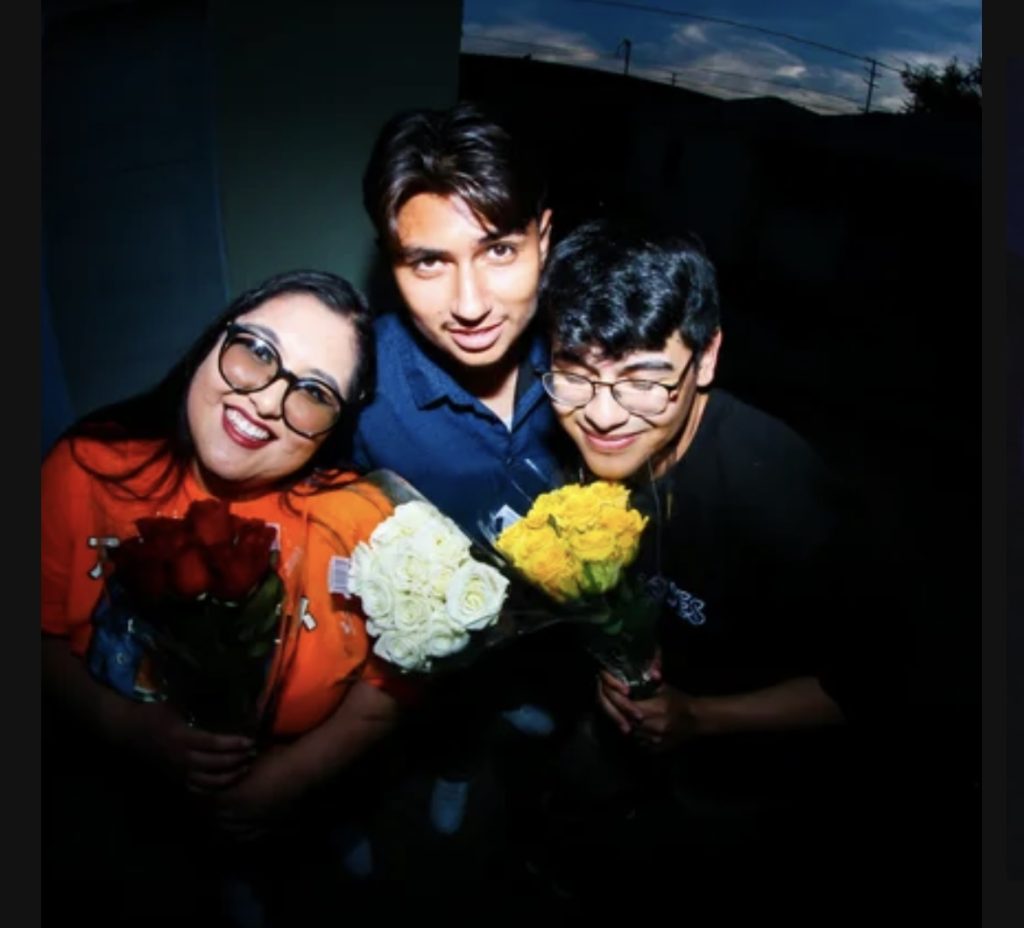
When Reaching Youth Through Music Opportunities (RYTMO) first opened its doors in 2003, it had an ambitious mission: to recruit underserved youth and offer them access to quality music instruction in a studio with industry-standard recording facilities. Students were recruited from schools, wrap-around agencies, youth guidance centers, churches and by word-of-mouth to participate in a four module, 36-week program.
RYTMO began in an Anaheim recording studio and has since seen over 5000 students graduate with a music certificate and completed recording project. Many graduates have gone on to work in the music industry or pursue further formal music studies, like attending Berklee School of Music’s Aspire: Five Week Music Performance Intensive – where some have also received scholarships to attend the college at an undergraduate level.
RYTMO graduate Aziza Gomez is one of these students and recalls fitting right in when she first went to RYTMO’s open house in 2018. As a first generation Mexican-American, Aziza feels she was not encouraged to pursue a career in the arts or to push further than a community college education, but to rather find a more traditionally “stable” career.
“I learned so much and it just empowered me to know there were other Latinos and more minorities in the field that were rooting for me as well,” Aziza said. She attended RYTMO while studying saxophone performance at an LA-based conservatory of music and said she was able to “fill the gap” of her college education at RYTMO where she learned the fundamentals of the music industry. “RYTMO just makes it so clear that there is an industry out there for everybody, and other careers other than just a regular pop star,” Aziza said. Aziza is the lead singer and saxophone player for The Modes, a three-piece act that plays at arts festivals and venues around LA and Orange County, and recently released the song Crashin.
Executive Director of RYTMO Mike Anderson has been with the organization since its inception and in the last two decades has been inspired by how many students – with typically low graduation rates – have remained engaged enough to finish the program and go on to have successful music careers.
“We have had some youth with almost no musical ability develop into musicians and artists. We’ve had about 17 students attend Berklee’s summer intensive; two have been nominated for either a Grammy or an Emmy, and others have had TV song placements,” Mike explained. “Most notably however, is that many who don’t go on to follow a music path have still gone back to pursue their education and find employment.”
Along with giving low-income youth a place to express themselves creatively and complete a recording project, typically free of charge (depending on socio-economic status), RYTMO students often feel like they have entered a safe space, providing a stark contrast to what they’ve often experienced outside the studio doors. Mike believes that along with giving them a voice through the power of music and music technology, the course helps underserved youth feel seen and heard and this carries through to confidence in all vocational pursuits, whether that be in the music field or other.
Mike attributes the success of RYTMO to the unique offerings of the program. “Most non-profit agencies and schools aren’t offering anything like RYTMO. It’s a program totally different to anything out there, especially in that it keeps the interest of older teens,” Mike said. “Many teenagers are into rap and hip hop, not just classical or pop music, so to offer a program where they can express themselves using their preferred style is a big attraction – even though we place a restriction on what their lyrical content can be.”
The Covid lockdowns put a halt to in-person instruction but RYTMO used this time to revise its curriculum and brought it up-to-speed to reflect current trends in the music industry. As well as updating the information on copyright laws, marketing and publishing/licensing, the curriculum has also incorporated a section on career profiles that highlights first person accounts of working in the music industry. These profiles range from singer/songwriter to the lesser known “behind the scenes” roles such as a music supervisor, music librarian, and high school band director – providing a wider overview of potential roles in a music-related field.
RYTMO officially re-reopened online with Waymakers, a wrap-around agency in Fountain Valley during the pandemic in July, 2020 and was able to resume in-person classes in June, 2021. Along with announcing in March they’ll be incorporating their new curriculum into the various educational settings of Music Across Borders and the Berklee City Music Network, RYTMO was given permission last month to feature interviews from NAMM’s Oral History Collection in its classes.
“We are at the forefront of music education,” Mike believes. “The career profiles will grow as we continue to collaborate with more industry-related professionals that are willing provide mentorship and internships to youth desiring a career in music or the arts.”
Along with opening up new in-person classes across the US, Canada, and Latin America (via the 47 Berklee City Network sites), RYTMO will be launching its own sync music publishing company in 2023, where youth can have hands-on experience interning for a publishing company and potentially have their own songs placed on TV and film.
For the last two decades, RYTMO has been able to operate on a bare bones budget supported by grants, volunteer hours and the generous funding of donors, including Kendrick Lamar who donated $3000 of proceeds from his concert at the Honda Center in September of 2022. RYTMO hopes to secure more robust funding in 2023 to help grown the organization and reach more youth in need of its services. To find out more information on how to support RYTMO, sponsor a student or attend the program, email mike@rytmo.org visit the donation page.
